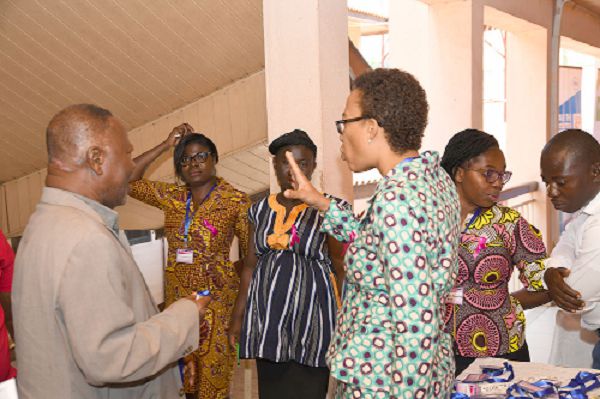
‘Fatalities in breast cancer cases avoidable’
The Breast Society of Ghana has held its Annual General Meeting in Accra to take stock and review programmes and activities towards a more effective performance.
The Breast Society was inaugurated in January 2018 to bring health professionals from across Ghana to work together to improve the management and outcomes of breast diseases, especially cancer.
The annual general meeting, which assembled relevant stakeholders who dealt with breast cancer cases, was dubbed “Breast diseases—closing the gap between patients, health workers and scientists”.
Addressing the meeting yesterday, the President of the society, Dr Florence Dedey, said fatalities in breast cancer cases could be avoided, if conditions were reported early and not confined to churches and other spiritual quarters.
She consequently advised that symptoms should be reported to the hospital early for treatment rather than solely relying on spiritual interventions for healing.
She said the society would collaborate with religious and herbal practitioners to ensure that women with breast cancer sought medical care early.
Dr Dedey said majority of breast cancer patients reported to the hospital at the critical stage of the disease only after spiritual interventions had failed.
“Patients sometimes stay in prayer camps and churches for months and even years when they detect the problem, and when it gets deteriorated they report to the hospital when we can do less about it,” she lamented.
‘We are losing women’
Dr Dedey said breast cancer was affecting relatively younger women in Ghana lately, and with the late presentations and non-compliance to treatment, the outcomes had proven unpleasant.
“Families are losing mothers, wives, sisters and daughters. We are all losing relations and friends and the society and nation at large is worse off for this,” she said.
Breast cancer continued to be the leading cause of cancer deaths in women in Ghana with about 2,000 deaths every year, she said, adding that about 4,000 new cases were also reported every year.
Dr Dedey said the late presentation of the disease to the hospital decreased the chances of patients surviving the condition, as she urged patients to seek early treatment even when they sought spiritual intervention.
Objectives
She said the Breast Society would bring together health professions to work together for the good of those affected by the disease.
The meeting, she said, formed part of the initiatives by the society to bring health professionals and other stakeholders from various parts of Ghana to work together to improve the management and outcome of breast cancer.
“We believe that bridging those gaps, especially among patients, health workers, scientists and other stakeholders would allow for a more holistic approach to care, and hence better outcomes of the management of breast cancer,” she stated.
Global case
A former Deputy Director of the Ghana Health Service, Dr Gloria Quansah Asare, said breast cancer remained a global health concern with women having the highest risk.
In Ghana, she said, it was the commonest female cancer with the peak age in the 40-50 year olds, adding that “survival in better resourced areas and countries were far better compared to what happens in Ghana and other developing countries”.
“The overall five years survival in better resourced areas is above 80 per cent, while ours is estimated to be about 40 per cent,” she said.
Dr Quansah Asare said late stage presentation of breast cancer cases was common and estimated to be about 67 per cent or higher in Ghana.
“This high proportion of patients seen with advanced disease is what influences the overall survival pattern negatively,” she said.
She said stakeholders, therefore, needed to work together to find a holistic approach to manage and treat breast cancer.
She commended the Breast Society for taking the lead to discuss ways to deal directly with issues relating to better survival of breast cancer patients.
